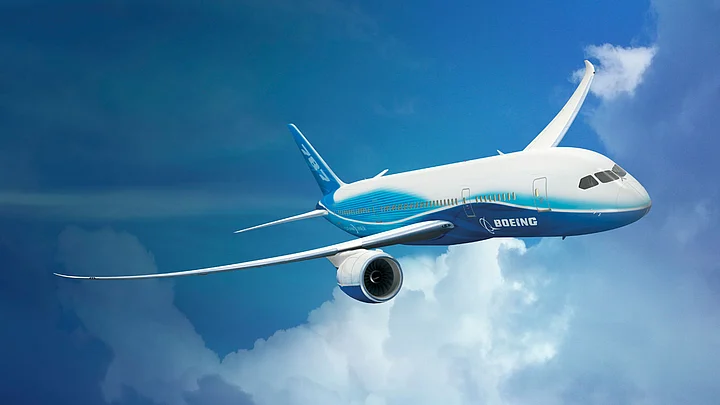The New York Times on Sunday, 30 December, uncovered the involvement of McKinsey & Co, a leading consulting firm, in a nefarious plot to meet an immediate shortage of titanium that connects the US, Ukraine, Russia and India.
The report disclosed how the shortage led the leading airline manufacturer Boeing, guided by McKinsey, to a firm owned by a Ukrainian oligarch, who then allegedly bribed eight Indian officials to procure mining contracts.
According to the report, “Boeing asked McKinsey to evaluate a proposal to mine titanium in India through a foreign partnership financed by an influential Ukrainian oligarch.”
And though McKinsey claims it “advised Boeing of the risks of working with the oligarch” and recommended due diligence, a PowerPoint slide that is a part of the evaluation report – a copy of which was procured by NYT – clearly stated the potential partner’s strategy for winning mining permits, including bribing Indian officials.
BACKGROUND - BOEING’S ROLE
From the onset, the case revolves around the need to address an urgency – to procure titanium. Boeing, that was preparing to roll out its flagship 787 Dreamliner, was facing a severe shortage of titanium for aircraft parts – so much so, that it faced a potential halt on production.
The airline manufacturer turned to McKinsey & Company, a consulting firm known to resolve potential roadblocks and expedite procurement of goods and services, particularly when dealing with ‘difficult’ countries and their governments.
Boeing then asked McKinsey to evaluate the proposal to mine titanium in India through a foreign partnership financed by Ukrainian oligarch Dmytro Firtash.
WHAT DID MCKINSEY DO?
In its report on the deal, potentially worth $500 million annually, McKinsey included the names of "key officials" that were a part of the potential partner’s strategy to procure the titanium from India by “gaining their influence”, including paying bribes.
Thus, it can be established that the firm was ‘aware’ of the illegalities of the strategy but failed to advise that such a scheme would be illegal or unwise.
The partner’s plan, McKinsey noted, was to “respect traditional bureaucratic process including use of bribes.”
According to the NYT report, McKinsey’s reference to the illegal acts has thrust the firm into a tangled international battle over the extradition of Firtash.
“Should he be brought to trial, McKinsey, and the document it produced, stand to play a major role in the outcome – a well of potential embarrassment that underscores the risks that McKinsey and other American consulting firms face as they, and clients like Boeing, do business in countries where ethical standards and practices diverge from those at home,” the report said.
WHO IS THE UKRAINIAN OLIGARCH?
Dmytro Firtash is a Ukrainian oligarch – a gas and oil magnate who made billions brokering energy deals – who was accused by the US Department of Justice (DoJ) of orchestrating a conspiracy to pay bribes worth $18.5 million to secure the mining permits in India.
In April 2014, the DoJ’s indictment of six of the accused in the case was made public, which revealed the name of Congress Rajya Sabha MP KVP Ramachandra Rao.
“One defendant, Dmitry Firtash, a Ukrainian national, was arrested on 12 March 2014, in Vienna, Austria. Five other defendants remain at large: Andras Knopp, 75, a Hungarian businessman; Suren Gevorgyan, 40, of Ukraine; Gajendra Lal, 50, an Indian national and permanent resident of the United States who formerly resided in Winston-Salem, NC; Periyasamy Sunderalingam, aka “Sunder,” 60, of Sri Lanka; and KVP Ramachandra Rao, aka “KVP”, 65, a Member of Parliament in India who was an official of the state government of Andhra Pradesh and a close adviser to the now-deceased chief minister of the State of Andhra Pradesh, YS Rajasekhara Reddy,” the indictment read.
Boeing had tentatively agreed to buy Titanium through Bothli Trade AG, a company controlled by Firtash.
Neither McKinsey nor Boeing was charged in the case, and Boeing has not been accused of paying bribes, the NYT report said.
DID THE DEAL GO THROUGH? WERE THE INDIAN OFFICIALS CHARGED?
The deal ultimately fell through and Boeing managed to procure the Titanium from other sources.
And although KVP was named in the DoJ’s indictment, no investigative agency followed up on the case.
In fact, as this report in The Wire points out, the lackadaisical approach of the Indian authorities towards the investigation formed the core of Firtash’s defence.
He had argued that the charges against him should be dismissed as Indian authorities had failed to follow up on the American investigation.
“... there is no allegation that Indian authorities have pursued, or are pursuing, any criminal charges related to this case. If India had an interest in bringing a criminal case related to facts set forth in the Indictment it could have,” Firtash’s motion petition in court had said, as per the report.
However, it is worth noting that Firtash never outrightly denied bribing Indian officials in the petition.
WHY THE US WANTED FIRTASH?
The NYT report points out that Firtash was a “big catch” for the Americans, who saw him as “close to the Russian president, Vladimir Putin, capable of leading a wavering Ukraine away from a Western economic alliance and into the Kremlin’s camp.”
Wikileaks also revealed that Firtash had ties to Russian organised crime figure Semyon Mogilevich, and various businessmen considered a part of Putin’s inner circle.
With inputs from The New York Times)
